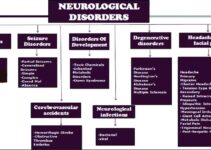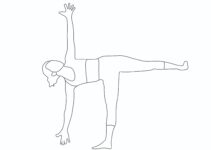Why meditation to cure diseases?
The popularity of yoga can be visualised through the International Day of Yoga on the 21st of June. More or less, 192 countries of the world practice standard yoga protocol. It shows yoga’s efficacy and importance in treating and curing many diseases. Meditation, or Dhyan, is one of the integral components of yoga. The US government has also shown its keen interest in yoga and meditation promotions and dedication to developing and supporting quality scientific research on the efficacy of yoga, including alternative medicines; now, the developed world has realised that yoga therapy and meditation can save billions and billions of dollars to the exchequer of the governments.
Research on meditation
Meditation shouldn’t only be considered a spiritual practice to reach or achieve an absolute or sacred state of consciousness. Recent research studies show that it is an effective treatment for reducing stress (Benson, 1995; Calderon & Schneider, 1999; Kulkarni, 1998; Shapiro et al., 1998; Walton et al., 1995), which can lead to hypertension. Practising regularly leads to mood boosters and a better quality of life (Baldwin, 1999; Gimbel, 1998; Shapiro, 1998). It also helps to alter the results of chronically ill patients (Anton, 1999; Davis et al., 1998; Speca et al., 2000; Vedanthan et al., 1998; Young, 1999; Zaza et al., 1999).
10 evidence-based benefits of meditation

- Psychiatric disorders: A research paper published by Katya Rubia on “The Neurobiology of Meditation and its Clinical Effectiveness in Psychiatric Disorders” has shown that physiological and clinical studies have promising impacts of meditation on stress-related autonomic and endocrine measures. It also helps to reduce anxiety.
- Meditation and metabolism: A study conducted on “Physiological Effects of Transcendental Meditation (Science 27 March 1970: Vol. 167 no. 3926 pp. 1751-1754) by Robber Wallacewherein has shown that the practice of transcendental meditation decreases oxygen consumption and heart rate and increases skin resistance.
- Cardio-respiratory changes: A research study has shown that practising pranayama and meditation leads to statistically different oxygen uptake and carbon dioxide output compared to others who are not doing it. The study also suggests that the meditation used in this study reduces the metabolic rate and shows positive cardio-respiratory changes.
- Cardiovascular disease: Evidence on the state of research in meditation practices viz. Mantra meditation, Mindfulness meditation, Yoga, Tai Chi, and Qi Gong showed the conditions of hypertension, cardiovascular diseases, and substance abuse greatly improved after the practice of such forms of meditation.
- Epilepsy: A study conducted under the title “Evidence that the Transcendental Meditation program prevents or decreases diseases of the nervous system and is specifically beneficial for epilepsy” by Orme-Johnson D: Med Hypothesis, 2007 has shown the practice of meditation decreased the symptoms of epilepsy.
- Meditation and Endocrine System: Several endocrine reactions have been identified in the meditative response pattern, including reduced blood levels of lactate, cortisol, and epinephrine (Wallace, 1970; Sudsuang et al., 1991). The reductions in these blood chemicals denote a state of decreased tension and anxiety.
- Central nervous activity: In a study, Jevning, R. (1992) hypothesised research (Based upon a broad spectrum of physiological data on Transcendental Meditation) that meditation is an integrated response with peripheral circulatory and metabolic changes serving increased central nervous activity.
- Psoriasis: As per a study shown by (Kabat-Zinn et al., 1998), meditation has become a popular tool in psychotherapy as a relaxation technique (e.g., Benson, 1978) and helps psoriasis patients recover faster when including a meditation regimen in the treatment
- Post-operative healing: Meditation and pranayama help in post-operative recovery with lesser dependency on drugs, pills & pharmaceuticals, develop skin resistance, and enhance the immune system.
- Controls free radicals: Regular meditation enhances energy levels, strength, and vigour and controls free radicals and tissue damage.
10 wonder benefits of meditation
- Controls the ageing process
- Treats headache and migraines
- Cures fertility
- Good for developing willpower
- Treats sleep deprivation
- Increases focus and concentration
- Increases higher intelligence
- Increases the feelings of vitality and rejuvenation
- Increases exercise tolerance
- Improves lung health and easier breathing






I have wants, what yoga,I can do for spondylitis problem. Can I do sarvangaaasan for spondylitis , please advise for that matter.
You can do Bhujangasana, Matysasana, Marjariasana, etc. In fact, you need yoga therapy. It is better to consult a yoga therapist for few days for the said problem.
The way you have presented the article is praise worthy. Hats off you and your team.
Nice information thanks for sharing.